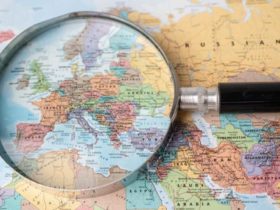Note: This post may contain affiliate links which means if you click on a link and purchase an item, we will receive an affiliate commission at no extra cost to you.
This is chapter 6 of an 18-part series about digital nomading and location independence. To see all of the other chapters, click here!
For Non-Americans
- If you’re not American, I recommend speaking with an expat tax lawyer in your country or hunting for information on Google. I couldn’t find a great guide for non-Americans – maybe I’ll create one in the future. 🤷♂️
For Americans
- The United States is one of the few countries that taxes non-resident citizens. This means even if you’re not in the U.S., you have to pay normal U.S. taxes unless you qualify for a Foreign Earned Income Exclusion (FEIE).
- To qualify, you must spend over 330 days abroad in any rolling 365-day period. If you qualify for the FEIE, your first ~$100k of wages or self-employment income is tax-free.
- Planning to nomad for an extended period? I recommend switching your residency to an income tax-free state. There’s no point in paying income tax to a state while living abroad. Income tax-free states include Alaska, Florida, South Dakota, Texas, Washington, and Wyoming.
To learn more, here is a detailed guide on switching your state residency and here is more information about the Foreign Earned Income Exclusion.
If you’re looking for an expat tax service, popular options include Taxes for Expats, OnlineTaxman and Greenback Tax Services.
Keep Reading: Click here to read Chapter 6: How To Handle Cell Phone Plans As A Digital Nomad










Leave a Reply
View Comments